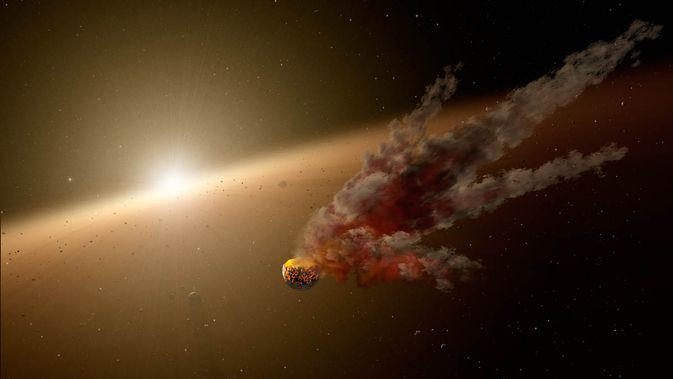Scientist Reveals Only Species That Can Survive An Extinction Event

A scientist offered a grim prediction of what would happen to the living organisms on Earth if a killer asteroid caused another extinction event. According to the scientist, only a few species will be able to survive the asteroid impact.
When the Chicxulub asteroid hit Earth about 66 million years ago, it triggered a series of catastrophic events that wiped out almost all life on Earth. The chain reaction began with the massive explosion caused by the asteroid strike, which caused life-ending heat waves, mega-tsunamis, volcano eruptions and forest fires all over the globe. The debris from the explosion then covered the atmosphere and prevented sunlight from reaching the Earth’s surface, causing a nuclear winter.
According to experts, these events contributed to the mass extinction of 75% of all animal and plant species on Earth. During Amazon Prime’s “The Next Great Extinction Event,” biologist Dr. Rolf Schmidt explained what would happen to the planet if a similar asteroid impact happened today.
Similar to the events 66 million years ago, Earth will undergo drastic environmental and chemical changes if it gets hit by a massive asteroid.
“A lot of hydrogen sulphide came out of the oceans because they were stagnating and hydrogen sulphide is quite a toxic gas,” he said in the program according to Express. “It caused a lot of things to die out from that and took a lot of time to recover.”
Schmidt noted that although a lot of species survived the initial impact, many of them died out as the planet went through various changes. If a similar event happens today, only the species with simple biological compositions and needs will be able to survive.
“If there was another catastrophe, it will be the rats and the seagulls and the cockroaches that will survive,” he said. “They are quite good generalists, they can survive on just about anything.”
“They are not specialized for any particular kind of food and they have rapid breeding cycles as well which helps,” he added.
Unfortunately, animals with more complicated biological compositions, such as humans, will not survive a new asteroid impact. Although there’s a chance that a certain number of people and complex animals will survive the initial explosion, they will most likely not be able to endure the environmental and chemical changes that Earth will go through.
“So things like, say, an elephant – that has a long breeding cycle so they might not survive so well,” Schmidt explained. “That seems to be the pattern back then as well, but there are other groups that seem to have weathered previous environmental changes that were knocked out.”
© Copyright IBTimes 2024. All rights reserved.





















